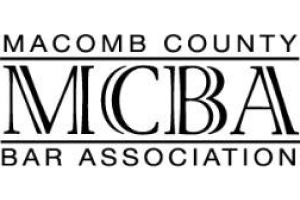- Free Consultation: (586) 264-3756 Tap Here to Call Us
Michigan Elder Law and Long Term Care Planning
Have an IRA? Facing a long-term care planning situation? Or maybe you have a loved one with elder law needs?
The biggest misconception for clients facing elder law issues is that Michigan elder law attorneys can only help veterans or adults facing nursing home placement and Medicaid planning.. This is not true. Using the same techniques for families that are facing nursing home placement or VA benefit planning, skilled elder law attorneys in Michigan can achieve fantastic results.
Understanding the law is key. Michigan Medicaid, which provides benefits to seniors confined to nursing homes, has a five (5) year “look-back” period. The law is interpreted by the Michigan Department of Health and Human Services as a strict policy that applies to ALL transfers occurring within a five (5) year period of application for Medicaid benefits. Further, the law assumes that any person over the age of sixty-five (65) can presume that they will reside in a nursing home in the future. As a result, many seniors and their families are reluctant to make transfers, even at the expense of their own care. However, if proper planning is used, a potential benefit applicant can INTENTIONALLY trigger a “divestment penalty” and actually PRESERVE assets if and when he or she needs nursing home care.
During this five (5) year period, there will be a need to provide for private care while the “clock ticks” on the look-back period. This can be accomplished by planning and applying for VA benefits to help satisfy the shortfall created by transferring assets from the potential applicant’s name. However, if the applicant is not a veteran, then additional planning is needed.
The answer, although often counterintuitive to most financial advice, may be using an IRA. IRAs (Individual Retirement Accounts) are tax-deferred or tax qualified assets used to provide income in retirement. These accounts grow, tax deferred, until withdrawals are made from the accounts either as needed, once over the age of fifty nine and a half (59 ½ ), or as required by law at seventy and a half (70 ½ ). Due to their favorable tax treatment, people are reluctant to access these accounts unless they feel that they must. This thought, compounded by financial planners, often results in people not touching the accounts until they are required, by the Internal Revenue Code (IRC), or, by the family of the deceased account holder, after his or her death.
Applying a sound long-term care planning strategy, a potential Medicaid applicant should consider using his or her IRA as his or her own “private benefit”. This is especially true if the person is anticipating the need for care in the future and IS NOT otherwise eligible to receive VA benefits. Systematically paying out or withdrawing from the IRA will trigger a taxable event on the money received, but, often times the amount can be offset by the care expense, itself, and will be the missing piece to supplement other monthly retirement income during the (5) year period AFTER all other non-qualified accounts (i.e. bank accounts, mutual funds, stocks, and, bonds) are moved into an irrevocable asset protection trust. Thus, by viewing an IRA as a source to provide a “private benefit” that can be used to help pay the cost of care, an individual facing long-term care planning can not only preserve his or her non-qualified assets and estate, but, can also avoid passing a tax burden to his or her family by inheriting an IRA.
Sound complicated? It is… Do not try this at home, proceed at your own risk. The best way to determine if this type of planning is appropriate for you and, or, your family is to call for a free consultation.
At SMDA, P.C. we always remind you to “Call First-Act Second”.
In West Michigan please call (616) 931-3670 , or, in Metro-Detroit, please call (586) 264-3756 to schedule an appointment.
Related Posts: VA Benefits 2016 Cost of Living Adjustment, VA Rule Changes, Still Time to Help Veterans, Michigan Merchant Marines May Qualify as Veterans











